Billy Coffey's Blog, page 17
September 12, 2014
“We’re all gonna DIE!”
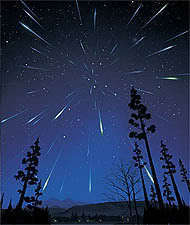
image courtesy of photobucket.com
“We’re all gonna die.”
So said my daughter tonight in the sort of operatic voice she normally reserved for when she mistakes the neighbor’s barbeque for a forest fire.
I listened as well as I could, though I’ll admit she nearly scared me to death at first—Die? Why die? What happened?—but then I managed to get the entire story. She’s 12 now, my daughter, an age I’m quickly beginning to see as Not So Young Anymore. The world is opening up to her, and not just the good stuff, either. She’s learning that not all of life is so wonderful and that the future doesn’t always seem rosy.
It was strange at first that what bothered her so much wasn’t something that would happen, but something that already had.
“Do you know how the dinosaurs died?” she asked me.
“No room in Noah’s ark?”
She looked at me like I was the kid and she was the parent. “It was a meteor!” she said.
“So why are we all gonna die?”
“Because there’s more,” she said. She waved her tiny arms around her head as if she were trying to beat them all away. “It like happens all the time.”
“What does?”
“They hit our planet and kill everything.” She slumped down on the sofa beside me and sighed. “One could be coming now.”
“I hope it waits until this ballgame’s over,” I said, “because I really want to know who wins.”
“I’m being serious, Daddy,” she said. “Aren’t you scared?”
I told her I wasn’t, and that seemed to satisfy her enough. Nothing else was said about things falling from the sky. Mission accomplished, I would usually say. But the fact is that I kinda/sorta lied to her when I said I wasn’t scared.
Because I kinda/sorta was when I was her age.
The truth is that the history of our fair world isn’t fair at all. There have been five mass extinctions in our planet’s history, the last of which occurred just over 70,000 years ago after a volcano almost wiped humanity from history before it had even started.
Just weeks ago, two meteorites passed within just a few thousand miles of Earth.
Global warming.
Terrorism.
Solar storms.
Ebola.
You get the picture.
I remember when I was about my daughter’s age hearing a preacher on the radio saying he’d received a vision from God (which, heard through his Southern accent, sounded more like GAWT) that the world would end in exactly seven days and thirteen hours. I can’t recall who the man was, but I remember the panic he caused among the few who actually believed him. Me included, of course.
I sat out on the hood of my father’s truck that night and waited for Armageddon. Didn’t come, of course. And even though predictions of The End will stick on me like a burr from time to time, I learned my lesson that day.
I learned that no matter how hard we all may try, none of us can keep the bad away. We can lessen its impact, we can fight it, we can even turn some of it into good, but the fact remains that it’s still there and it’s still coming. The world’s full of trouble, and whether that trouble comes from earthquakes or madmen doesn’t really matter.
If that sounds submissive, I didn’t mean it to be. My daughter fell into the very trap I’ve found myself in so many times—she was worried about something she couldn’t influence. In the age of twenty-four-hour news channels and the internet, that’s something we can all struggle with sometimes.
But I’m older now. I can let solar storms and the ebola go.
It’s the other, personal forms of destruction I want her to worry about, and that’s what I’ve learned to concern myself with more, too. Because it doesn’t take a meteor or a volcano to ruin our lives, especially when we can do that just fine on our own.
We can give in to pain rather than get through it.
We can surrender to temptation rather than fight it.
We can yield our dreams rather than cling to them.
Those are our choices to make, those small decisions that perhaps have no influence on the world outside but make all the difference in the world inside.
That’s what I want my daughter to know. Because planetary destruction is in God’s hands, but self-destruction is in ours.

September 9, 2014
Why I’m saying goodbye
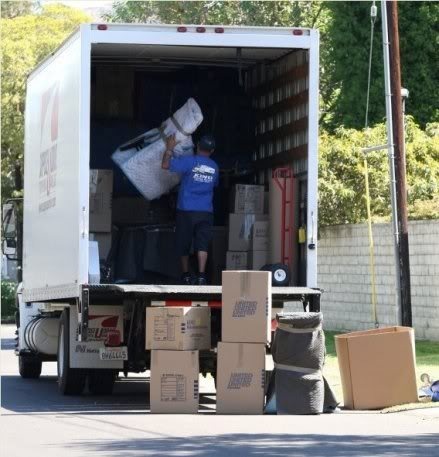
image courtesy of photobucket.com
Some friends of ours moved last week. Traded one set of blue mountains for a set of rocky ones. It’s something they’ve wanted to do for a while (he has family in Colorado, not twenty miles from their new home, and she grew up in nearby Boulder). Their move had less to do with the economy than a simple desire for a change of scenery. I nodded when they told me that, but I didn’t really understand. Who would want to leave rural Virginia?
I’ve known them for about fifteen years now. They’ve been to my home, I’ve been to theirs. We’ve shared meals and Christmas presents and birthday parties for our children. It’s a sad thing that in a world defined by hustle and bustle and there’s-always-something-going-on, few people slow down enough to make good friends. That’s what I’d call them—good friends.
But they’re gone now, a thousand miles westward. They will find new lives, and I will keep my old one.
Their leaving was a bit anti-climactic. That surprised me. I suppose deep down I knew what I had yet to consider, which was that they’d still be around. There’s the phone, of course. E-mail. Facebook and Twitter. Skype. No matter that two mountain ranges and a great big river separated us, they’d still be no more than a few button pushes away.
That’s when I realized how much the world has shrunk. Never mind that our technology has made it possible to cure disease and peer into the deepest reaches of the universe and know within moments what has happened in a tiny spot across the world. It has done something more profound than all of those things together.
It has lifted from us the heavy weight of ever having to say goodbye.
I’ve read stories of families separated during the Great Depression, of parents and children cleaved apart as some remained behind and others struck out for new territories and better hope. They had to say their goodbyes. Many were never heard from again. Can you imagine?
I remember looking around at my classmates during high school graduation and thinking that I’d never see or hear from most of them again. These were friends, many of whom I’d known since third grade. They’d shared my life, I’d shared theirs. Yet as I sat there I knew all of that was slipping away. I knew that to live was not about being born and dying later, it was to endure many births and suffer many deaths, and sometimes that birth and death happens in the same moment.
I was right. Twenty years later, I’ve not seen many of them. But more than one have friended me on Facebook, and from all over the world.
This should make me feel good, I guess. Aside from death, there are no farewells now. There is always “Talk to you soon” or “Shoot me an email” or “DM me.”
But I don’t feel particularly good. I think we’re missing out on something if we never have to say goodbye anymore. I think it robs us of the necessity of truly understanding the impact some people have on our lives, and the impact we have on the lives of others. To have to say goodbye is to know a part of you is leaving or staying, either scattered through the world or planted where you are.
I say this because just a bit ago, I received an email (plus pictures) from my friends. Things are well with them. They’re settling in and getting used to things. They’re happy. And that’s good.
But rather than casually shooting an email back, I think I’ll sit down and take my time. I think I’ll treat it as a farewell, even though it isn’t. I think I’ll tell them just how much I’ll miss them even though it’ll be as if we’re still just down the road from each other.
I figure somewhere deep down, they’ll need that goodbye. I know I do.
September 5, 2014
Hidden treasures
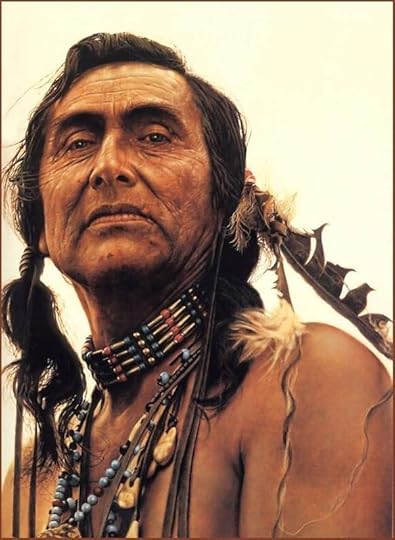
image courtesy of photobucket.com
If you would by chance happen to knock at my front door and ask to see where I keep my most prized possessions, I would lead you to my upstairs attic, pull the string on the exposed light bulb, and point to a spot along the far wall just beneath the vent leading outside.
There you would see an old toolbox, battered and rusty from years of use. The chipped green paint and rusted hinges may lead you to believe its contents are inconsequential at least and forgotten at most.
You would be wrong.
What’s inside that toolbox represent my life’s more memorable moments. A gum wrapper, some pine needles, a spent ring from a cap gun, and so on. Like I said, my most prized possessions. Knowing they’re up there makes me feel a little more comfortable being down here.
My mother has something similar, though her toolbox is disguised as a hope chest that sits in the corner of her bedroom closet. Inside you’ll find old report cards, forgotten toys, and pictures. Lots of pictures.
My father opts to store his keepsakes in the top drawer of his dresser, which had for years been strictly off limits to my prying hands until last week, when I summoned the courage to ask permission to rifle through its contents. I found old coins and older knives, one gun, several bundled letters I did not read, one wooden cross, and more old pictures.
I asked around, and most everyone had their own places for such things hidden somewhere out of sight. People have confessed to stashing their tokens of both past and present in socks and safe deposit boxes, cookie jars and coffee cans. One friend even stored his the old fashioned way—under the mattress of his bed.
Each admitted that no one else would be much interested in their private treasures. Again, none of them could be defined as valuable. Not on the surface, anyway. But beneath? Beneath they were priceless. I could tell they were by the hushed tones and soft smile they would offer along with their confession, as if the telling conveyed some holy secret.
Which I suppose is exactly the case. Handling those relics of the things we hold most dear often takes on the appearance of religious ritual. Touching a memory can be a powerful experience. An old photograph may not represent a mere moment in time, but a token that love is something worth holding onto. And a trinket may not be a trinket, but a symbol that faith does indeed move mountains.
We should consider these things holy. We are, after all, the sum of our experiences. We need those reminders lest we blur our today and cloud our tomorrow. We need to know where we’ve come from if we’re to know where we’re going.
One person I asked had things a little more figured out than the rest of us. A full-blooded Sioux, his people have had much experience in placing great meaning on physical objects. When I asked him where he kept his most precious things, he pulled his T shirt down and pulled out a leather necklace. On the end was a small beaded pouch that was fringed at the bottom.
“Here,” he said. “I keep them here.”
I told him about my toolbox, about the hopes chest and dresser drawer and socks and coffee cans. I even told him about my friend the mattress stuffer. He nodded and smiled, then said, “We all have our sacred things. But you keep yours hidden and far away. What good will they do you there? Why not keep them visible and close instead?”
I opened my mouth to answer, but nothing came out. He was right. Everyone I had talked to kept their treasures hidden away in the darkness of a chest or drawer. Myself included.
Why? Was it because we felt them too valuable to risk the light of day? Or too fragile to be handled often?
I wasn’t sure. But I began thinking about the things our treasures represent, the love and the faith. And I began thinking that often they, too, go hidden and unused. We tuck them away for fear that they are too valuable or fragile, when they are the very things we should carry close to us every day.
September 1, 2014
Labor(ing) Day
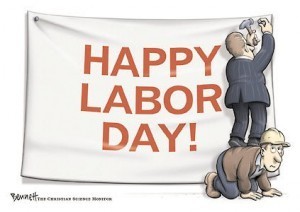
image courtesy of photobucket.com
I’m working. On Labor Day.
Ironic, isn’t it? That I would be working on a holiday that was instituted to celebrate the working man (and woman), I mean.
I’m sure I’m not the only one schlepping off to work this morning like any other day. We’re toasting the end of summer by sitting in offices or factories or standing outside building houses or putting out fires. Nothing wrong with that. These days, we’re lucky to have a job at all—a fact no doubt driven home by every boss everywhere whenever an employee vents some dissatisfaction.
Work is a part of everyone’s life at some point. I suppose that’s God’s plan. We hear the adage of idle hands being the Devil’s tools and read scriptures like “He who does not work should not eat.” Seems pretty clear—we’re not here to just hang out, we have to be useful.
Holidays are such because they’re meant to focus our minds on something in particular rather than leaving them in their normal, scattered state. Christmas and Easter are all about Jesus (or should be). July 4? Freedom. Thanksgiving is a time to focus on our blessings because there are always some, and Valentine’s Day is all about the people we love.
And Labor Day? Labor Day is all about what we do for a living.
For me, it means a private liberal arts college nestled among the Virginia mountains. I’m the campus mailman. Just me and the two or three student workers who may or may not bother to show up on a normal day. Working pretty much by yourself has its advantages, no doubt about it. Job security, for one. Not having to spend hours in small talk is also a plus, because I abhor small talk.
But working here also has its drawbacks. The campus post office was once home to three full-time employees instead of only one. To say things get a little hectic around this time of year would be an understatement. So if you’re wondering where the heck I’ve been for the last few weeks, the answer is under piles of Cosmopolitan magazines and packages from twelve hundred mommies.
The truth? I’d rather be doing something else. I took this job because I was going to be laid off from my previous one (which wasn’t all bad, since I got a novel out of it), and I took that one because I was burnt out from the one before. So while I’m walking my five miles a day with a smile haphazardly positioned on my face, I’m really wishing I were up in the mountains somewhere writing.
Chances are that when it comes to occupations, you’d rather be doing something else, too. I read an article a while back that said the best job to have in this country as far as pay, benefits, and perks, is a college professor. Since I’m surrounded by professors every day, I thought I’d test that theory. Over the course of a week I asked twenty of them if they were happy where they were or if they’d rather have a different line of work. Each answered they’d rather be elsewhere. Some wanted to write books, others to travel. Two wanted to be farmers. There was even one who confessed what he really wanted to do was become a bounty hunter.
There’s nothing too strange about that. In fact, I’d go so far as to say that what’s rare in this life is to find someone completely happy with what he or she does to pay the bills. We all have our secret dreams and far-flung desires. It’s part of being human, I think. In our deepest selves, we’re always searching and never quite finding our place in this world.
Do you think this is true? I’d like to know, because reading back through that last paragraph left me feeling a bit pessimistic.
Maybe that’s just a symptom of having to work today. Then again, maybe that’s just one of those non-negotiable, hard truths of life.
So let’s celebrate this Labor Day with a little survey. Leave a comment below. Tell me what you do for a living, and then tell me what you’d really rather do for a living.
Let’s put my theory to the test.
August 28, 2014
Too heavy to carry
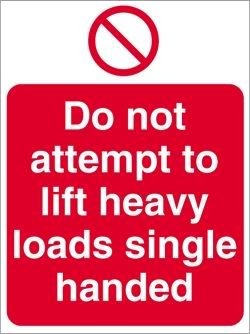
image courtesy of photobucket.com
“Daddy, can you carry this? It’s too heavy.”
My daughter. She trails behind her a sack of what may be books, or maybe laundry. I can’t tell from where I sit. I can, however, tell she’s right. It’s too heavy.
“Sure thing.”
I get up and make my way over, but not before turning the channel on the television. Just in time, too. My daughter craned her neck toward it at just the next moment. She got an eyeful of Sportscenter rather than an eyeful of the latest bloodshed.
I bent down and grabbed her sack—books after all.
“Where’m I taking this?” I ask her.
“To my room.”
I nod and shoulder the load. “Lead on, MacDuff.”
She takes one more look at the television, says “Sorry about the Yankees, Daddy,” and then blazes a path down the hallway toward her room.
“That was Shakespeare, you know,” I tell her. “The MacDuff thing.”
Unimpressed with my literary knowledge, she merely nods and says, “That’s nice.” I know something else is on her mind. Something else is always on her mind. I deliver Harry Potter and the rest of his clan to the safety of her bed, ask her if there’s anything else I can do for her, and park myself back in front of the television.
I push the button on the remote control that says Previous. Sportscenter disappears in a blaze of pixels that reforms into the rest of the evening news.
It’s a habit I’ve repeatedly tried to break, this news watching. I’ve reached the point where I can bear no more and have decided to test the theory that ignorance truly is bliss. Little of what I see on the television is ever felt in my quiet corner of the world. Things here go much as they always have, slowly and with little change. But a part of me feels it is my responsibility to know what’s happening. There is a sense that I must bear witness to these times, if only to pray that God will deliver us from them.
I see a pair of eyes peek at me from around the corner, small eyes full of questions. They grow into my daughter’s face. I push the button again. Back to sports.
“What you need, sweets?” I ask.
“Nothing.”
“Sure?”
She is not, and so walks into the living room and sits beside me. Says, “What were you watching, Daddy?”
“Just some sports.”
“No,” she says. “Before.”
I have the feeling she knows exactly what I was watching, which means I can either lie or tell her the truth. It’s not good to lie to your children. Necessary at times, but still not good.
“I was just watching a little of the news.”
“How come you always turn the news off when I’m around?”
“I don’t know,” I tell her. “You’d probably think it was boring stuff.” It’s a lie. Like I said, such things are necessary at times.
“I don’t think it’s boring. I like to know stuff.”
She leans her head on my shoulder and we laugh at the commercial on the screen. Mine is a tired chuckle, the sort that’s given more out of expectation than genuine feeling. I suppose my thoughts were more on the newscast than the humor. Hers, though? Complete and joyous, a laugh unencumbered.
The laugh of a child.
“You know that sack I carried to your room?” I ask her. “How it was too heavy for you to carry?”
She nods against my shoulder.
“That’s sort of why I don’t like you watching the news. Your sack was too heavy for your muscles, right?”
Nod.
“Your spirit has muscles, too. Some things on the news, they’re too heavy for you to carry right now. That comes later, when you’re older and stronger. Then you can carry all of that. But for now, I think you should just carry the lighter things. I’ll carry the heavy things for you.”
I kiss her on the head, a sign she understands means that’s all I can stay. My daughter lingers long enough for the commercials to end, then she skips back to her room and her Barbies.
I don’t know if she understands what I’ve just told her. Maybe that is too heavy for her as well. A part of me hopes it is.
My finger rests on Previous, and I realize it’s done so by habit. News, always news. Another set of eyes from the hallway, these the smaller ones of my son. He asks if we can watch cartoons. I tell him yes.
There will be no more news tonight, and I decide that’s a good thing.
Because there are still many things even too heavy for a father to carry.
August 26, 2014
A back to school call to arms
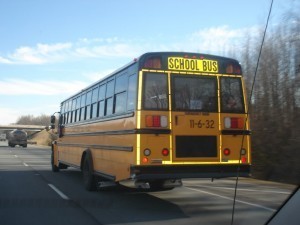
image courtesy of photobucket.com
It’s often said people don’t miss what they don’t know, and that is a maxim proven true many times in my life. Like right now.
When I was a kid, back-to-school shopping involved little more than perusing the two aisles of office supplies at the local Roses, where the selection was limited and the quality was debatable. But now there’s Staples. If there had been a Staples when I was in school, I’m sure I would have roamed the aisles of notebooks and pencils with the same sense of wonder and excitement my children are displaying.
Shedding the outdoors for a classroom is now a call to arms. One look at the sheet of necessary supplies in my wife’s hand that came directly from the school officials confirms it. Pencils, notebook paper, backpack, glue, tape, composition book, erasers, and kid-friendly scissors are just a few of the necessary items. I feel like I’m sending my kids off to college rather than fifth and third grade.
Although I am at times not so patient a father, on this day and in this store understanding comes easy. My kids are regarding our trip here with the perfect blend of excitement and seriousness. A tiny seed of knowledge is being planted within them that somehow this supply shopping is no errand. In a few years it will sprout and grow into the knowledge that what they are doing is the physical manifestation of a spiritual truth. They will see this a holy rite, and a universal one at that.
Because if my children are anything like me, all this shopping and ogling over school supplies and all this excitement over starting a new year will likely one day be replaced by a determination not to screw things up yet again.
I was never a standout in school. Nowhere near honor-role caliber. Average at best. I suppose I had the smarts to do better and be more, but not the drive or discipline. What people thought of me and how I fit in mattered much more than learning the Pythagorean theorem or how photosynthesis worked. Then, and sometimes now, the things that really shouldn’t matter at all mattered very much.
For me, the best days of the school year were the first few and the last few. The first few because they always held the most promise. The last few because by then I had firmly entrenched myself in my yearly rut of getting by rather than pulling ahead, and just wanted everything over with.
But summer vacation is the Great Eraser, three months of sunshine and play that put enough distance between me and the previous nine months to suggest the next year might be mine to own. Back-to-school shopping would always cement that thought. All those fresh notebooks with empty pages waiting to be filled with knowledge? Pencils sharp and wood-scented, ready to chew on in deep thought? And of course there was the epitome of student organization, the Trapper Keeper. Those were the weapons I would wield in the battle against myself.
And it always worked for the first few weeks, after which those notebooks would be filled with doodles born of boredom and angst, the pencils would be thrown at either a classmate or the ceiling, and my Trapper Keeper would have been torn to shreds and abandoned in the bottom of my locker.
We have good intentions, don’t we? Every notion to make the next day our best, to rise above petty thoughts and empty words and become who we know we can be. And still every night we close our eyes with the nagging thoughts of who we let down and what we couldn’t measure up to.
Just as we can’t be the perfect student, we’ll never be the perfect people. Deep down we all know this. But we also know that just because our feet are stuck in the mud of this world doesn’t mean our hands can’t reach ever higher toward the sky. Just because we cannot fly doesn’t mean we shouldn’t stand tall.
That’s what I want my children to know as they walk these aisles.
August 21, 2014
Making a memory
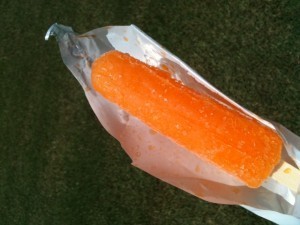
image courtesy of katdish
We are by the creek, my son and I, our backs against the grass and our feet in the water, looking first to make sure the snakes are gone and then to the two white wrappers between us.
“You’re first tonight,” I tell him.
“Orange,” he says, “because it’s like the sun.”
I hand him the wrapper on the left and look out toward the mountains. Sure enough, the sun looks orange. That means red for me. Good. I like red.
He opens the package and licks the popsicle inside. There is a satisfying smack on the end, followed by, “Aaah.”
We sit for a while and watch in silence, watch the robin searching for supper in the front yard and the bumblebee doing the same in the flower bed and my wife and daughter watering the hanging baskets. I don’t know what my son is thinking, but I’m thinking that sometimes you can be closer to someone when you’re not talking and just enjoying their company.
These post-supper trips to the creek with popsicles were his idea. The inaugural event was held on the first day of summer vacation. Seems like that was just yesterday, but it was almost two months ago. Time ticks faster when we’re having fun. That’s what my son told me the other day. Then he said he sat for five minutes and watched the clock and discovered it ticks just the same whether you’re looking or not.
There’s another lick and smack, but this one is followed by a sigh. I ask him what’s wrong.
“Summer’s almost over,” he says.
I ask him how he knows that, and he answers that he saw the newspaper last Sunday. There was a back-t-school ad mixed in with the comics section. He says seeing that made him feel like he did the time he ate chili and then ice cream after.
“I want it to stay summer forever,” he says, “like on Phineas and Ferb.”
I don’t know what to say to that. I’d like it to stay summer forever too, and offering up some cockamamie wisdom about how all good things must come to an end would only depress the two of us more. Instead, I start singing the Phineas and Ferb theme song. Partly because I have to say SOMETHING, but mostly because it’s nearly impossible to sing and be depressed at the same time.
He joins in halfway through. When we finish, the lick/smack/sigh is replaced by lick/smack/smile. Much better.
“Dad, can I ask you something?”
“Sure,” I tell him.
“Are we making a memory?”
I bite down on my red popsicle and think. “I reckon so,” I tell him.
The smile is bigger now. It’s the sort of smile you get after you’ve been carrying a very heavy something for a long while and can finally lay it down.
He is silent again, but not because he didn’t hear me. He’s too busy to talk. He’s more concerned with doing the one thing children always excel at and adults usually fail miserably—being in the moment. His eyes are bugged and his breathing is deep, steadying himself against the picture his mind is taking.
The cool water flowing over his hot toes, the orange sun peering from the peaks of blue mountains, sounds of robinsong in the trees and frogs in the woods, the sight of his mother and sister and the gentle mist of hose water over purple and white flowers, orange popsicle leaking down his fingers, the bright sky and the warm breeze, the first star of the night and the knowing that for this one instant, the whole world is peaceful and good and right.
He is living this moment, and when he is done he will tuck it into a secret place in his heart and keep it safe. He will tend this moment and nurture it and keep it whole. Alive.
And on some cold and distant January day that promises little more than spelling tests and word problems, my son will sit in his small desk at school and pull that memory out. He will look out the window and see bright skies rather than somber heavens and green leaves rather than bare trees. He will hear robinsong and taste orange popsicle and feel cool water running over hot toes.
It will be winter then and he will be at school. He will know then that the world is not peaceful and good and right, but he will gain strength knowing it once was and thus may well be again.
All because of the memory he made with me on this summer night, here by the creek.
August 18, 2014
Believing in the Maybe
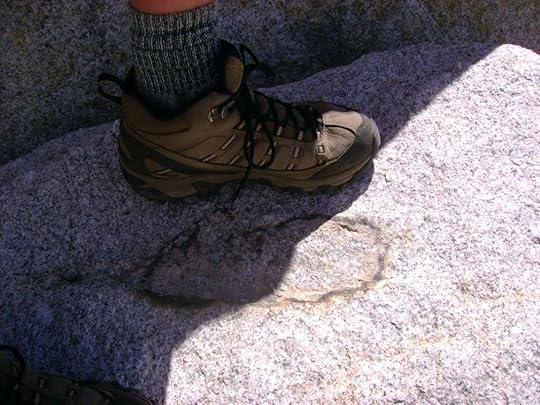
image courtesy of photobucket.com
My daughter and I are standing in the middle of a one-lane dirt road deep in the woods. Locals call it the Coal Road, the story being that generations ago coal from the mountains was transported through here by some sort of rail. I’m not sure if that’s true or not—something about that doesn’t seem right—but it’s the Coal Road nonetheless, maybe like big people are often nicknamed Tiny or Slim.
It’s peaceful here on the Road, though during summer nights and autumn weekends the local teenagers come here to drink and, in words my grandmother would once whisper, “Know each other in the Biblical way.” The thirty thousand acres leading from the Coal Road into the mountains are both unspoiled and wild. Mysterious, too. There are plenty of stories about this wood and the spirits that are said to inhabit it. And as someone who’s tromped and trampled through much of it over the years, I can say at least some of them are true.
But those are other stories for other times, because at the moment my daughter is on the prowl. On a mission. Strapped to her narrow waist is a fanny pack that Scooby and the gang might call a Clue Kit, and right now she’s using a magnifying glass to inspect some rather strange footprints in the dirt.
“This is something, Daddy,” she says. She moves the magnifying glass from the ground and stares at me with it. One of her eyes looks like a giant brown golf ball. “This might be him.”
I offer a serious and grave nod as if it might just be him, even though I’m pretty sure what my daughter is looking for would not be wearing a size eleven hiking boot. She takes the small digital camera from her fanny pack and snaps off a couple pictures. “Okay,” she says, “let’s keep going.”
We move from the Road to the trail—this one about three miles and leads to a large reservoir, but I don’t think we’ll go that far. The day is hot and she knows there are snakes. My daughter doesn’t like snakes. I figure if I can come up with a few more clues, that will satisfy her.
Included in the fanny pack is the book that started all of this. I can’t remember the name, Monsters of the South or Unexplained Monsters of Virginia, something like that. My daughter likes her ghost stories, so any book that includes Monsters or Unexplained in the title is fair game. Her grandmother says such reading material is a little too Devil-like, but I don’t mind. I like Monsters and Unexplained, too.
That book led to another and then to another, and then finally to an internet search that lo and behold revealed that Bigfoot himself—or at least one of his kin—had been spotted here in the unspoiled and wild and mysterious wood along the Coal Road back in the 1980s. I don’t remember hearing such a story, but I’m inclined to believe that anyone could see anything here given enough moonshine. I didn’t tell my daughter that when she suggested we take a lazy Saturday afternoon and turn it into an Unexplained Monster hunt, I just said okay. I’d never hunted a monster, and we were due for some daddy/daughter time. Besides, there wasn’t much else going on.
“Look at that!” she says. “There’s a clue.”
And it is, though the marks on the old oak in front of us are a clue that a bear has been by rather than a Bigfoot. I tell her to take a picture. She does. I leave out the part about the bear. That would scare her more than a Bigfoot.
We find other things on our walk—deer hair that is really Bigfoot hair, the chatter of squirrels that are really Bigfoot giggles, and a small hole in the rocks that just might be a Bigfoot home. All are studied and pictured and cataloged in the small notebook in her fanny pack. By then it’s noon. We’re both getting hungry and we’re both sweating, signs that it’s time to head home.
We drive the old truck over potholes and washed-out dirt road, the sun shining through canopies of leaves. It’s been a good day. A great one. We’re making memories.
“Daddy,” she says, “I really don’t believe there’s a Bigfoot. But I like to believe in maybe.”
I nod and smile and rub her head, satisfied that our trip here to this ancient and (some would say) haunted wood has revealed something to us both.
Because she’s right, my daughter.
It’s always good to believe in maybe.
August 14, 2014
The cosmic dance

image courtesy of photobucket.com
What I’ve been thinking lately:
My little town isn’t so little anymore. Its population has boomed in the last twenty years from about three thousand to right around ten thousand people. The old two-lane road is now four. The lone stoplight we used to have has somehow given birth to five more. And there seems to always be a new subdivision being built in an old cornfield.
Ask the business owners, and they’ll say all this growth is a good thing. Ask the old timers, and they’ll tell you that it isn’t so good. The town’s growing, they say, but the community is shrinking. There’s a difference, and it’s a big one. I used to have to drive down Main Street with my hand perpetually stuck in the wave position. Not so much anymore. There are a lot of people I don’t know. Which means you can be surrounded by people and still feel lonely sometimes.
Many have come from the south and west in search of work, but most have come from the north. That fact alone was cause for concern for a lot of people here, those old in both age and ways and who still smart from the last time the Yankees invaded. But those times are over. These new Yankees do not have violence on their minds, but retirement. They’re tired of the cities and the noise. They want the peace and quiet of the country.
So they come. They buy their houses and settle in with the expressed purpose to slow down and take things easier. To force their lives not to be so hectic. “We’re always moving,” one of them told me the other day. “It’s just this constant state of having to do something. We hated it. So we came here. We just wanted to slow down and stop.”
I tried not to smile, but I did anyway.
This once-sleepy town is no Nirvana. It offers much, but not stoppage. Because the fact of life is that it’s busy and we’re always moving.
It doesn’t seem fair, really. As children, all we want is to go. Doesn’t matter to where or for what or how long, just as long as it’s somewhere. But the years wear on us. There are responsibilities. There is work and family and goals and dreams and we’re in the middle of it all, running. Moving. We long to slow down and stop not because we’re lazy, but because we’re tired. And because at some point we begin wondering if this is really all life has to offer, just more moving and more doing and never any rest.
I’ve wondered that myself lately. And I think that maybe the answer to that is no. Maybe that’s all life is. Movement.
I read the other day that the Earth spins on its axis every twenty-four hours at a speed of 1,000 mph. Pretty fast, isn’t it? Not as fast as this planet’s speed around the Sun, though. That’s 66,000 mph. So technically speaking, that means even though you think you’re sitting still and reading this right on the other side of a computer screen, you’ve traveled six hundred miles since you began reading this paragraph.
No wonder we’re always so tired.
I suppose that from the universe’s standpoint, not only is there not much we can do about our constant moving, we should be thankful there isn’t. Moving means life, and life continuing. It means that the Earth spins and the sun shines and all is well. It means that the cosmic dance continues unfettered.
Maybe that’s how we should look at our hectic lives. Because no matter who we are, it’s hard to slow down. Those precious moments of rest and nothingness are precious because they’re so few. I think that’s how it should be.
We can’t help but to move, but we can help how we move.
We can make sure our comings and goings are ordained by God Himself, that our actions, however small, are made as a prayer to Him and a help to others.
Yes. That’s it. That’s what we need.
Not less moving, but better moving.
That the cosmic dance continues unfettered.
August 11, 2014
The prayer of Jabez
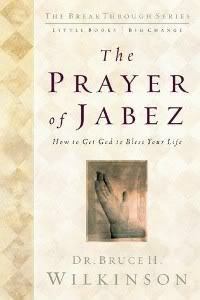
image courtesy of photobucket.com
I was at the book fair the other day and found a copy of The Prayer of Jabez for $2.99. I’d completely forgotten about that book. Which is odd considering how popular it was ten years ago. Seemed like everyone had a copy of that book. Or the Bible study. Or the journal. Or the workbook or the copy for teens or women.
It was quite the industry really, and the reasons for it were pretty apparent. Say a little prayer, and God will bless you in abundance. It almost seemed too good to be true, but there it was. There was even a verse to back it up.
I never bought a copy. Didn’t even buy the $2.99 copy at the book fair. Not because I didn’t (and still do) want to be blessed in abundance, but because once upon a time I said my own version of Jabez’s prayer without knowing it. The answer I got was a little different than his. And though that prayer was uttered at years ago, I still remember that conversation between God and me.
It was like this:
“You there, God?”
I’m always here.
“Can I tell You something?”
Of course you can.
“I have dreams.”
Wonderful! Everyone should have dreams.
“They’re great dreams. Really great.”
I should hope so.
“Yeah. So, I was wondering if, You know, You could make those dreams come true.”
Of course I can. Why else would I give them to you?
“Oh, I don’t know. Lots of reasons, I guess. Wait. You gave my dreams to me?”
Where else would they come from?
“I don’t know…me?”
I give you the desire. You do the work. Life is a partnership between you and Me. Not 50/50, though. More like 100/100. You give your all, I give Mine.
“Great! So I can have my dreams?”
If you work and you believe, yes. But certain things have to be done first.
“Like what?”
Great dreams require great people. So first, I must make you great.
“Now I like the sound of that. So I’ll be popular and rich?”
Popular and rich doesn’t equal greatness.
“Then what does?”
Love and kindness, faith and trust. Trust especially. You need to understand that it’s not your happiness I want, it’s your trust.
“Okay.”
Are you sure? This isn’t going to be easy for you.
“Sure it will. I can be that sort of person if it means I’ll have my dreams.”
You don’t become that sort of person to get your dreams, you get your dreams because you’re that sort of person. There’s a difference.
(Silence.)
You think your dreams will bring you success, but some of the most miserable people in the world are the ones who’ve gotten everything they’ve always wanted. Stuff doesn’t bring joy. Only I do.
“Oh. So maybe my dreams aren’t all that good for me?”
Parts are. Not all. But that’s okay. I can give you better things than those.
“When I become great.”
You don’t have to be great for Me to bless you. But for your dreams, yes. You must be great.
“I still want to be great, even without the dreams. But the dreams would be nice.”
Wonderful!
“So…when can we start?”
We can start now.
“I was hoping You’d say that. Then I pray You’ll give me love and kindness and faith and trust and make me great.”
Good. But remember, there are two things that I must give to everyone in order to make them great and realize the dreams I have for them.
“Grace and blessing?”
No. Time and trial.



